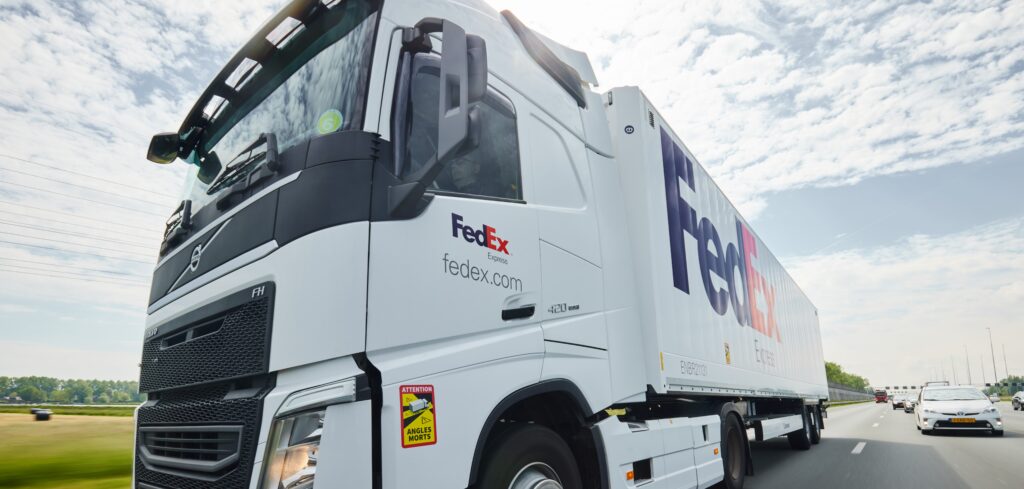FedEx Express Europe has begun using renewable diesel made from organic matter or waste materials to fuel a portion of its company-owned trucks when they depart the recently reopened FedEx Express road hub in Duiven, the Netherlands.
According to FedEx, the decarbonization of the heavyweight transportation sector is recognized as more challenging than parcel pickup and delivery, where the transportation company has already outlined its goal to transition to a fully electric fleet by 2040. The required mileage range, the time needed to refuel and the fact that, by the very nature of their operation, heavy goods vehicles travel between territories, means they often require refueling in multiple countries.
“Using synthetically made diesel offers an interim solution with the promising ability to drive down ‘well-to-wheel’ carbon emissions by as much as 80-90% per liter,” said Vinay D’Souza, senior vice president of planning and engineering at FedEx Express Europe. “It means that while technological solutions are still being developed to help the industry transition away from using fossil fuels altogether, we can already make decisions to influence and reduce our Scope 1 carbon emissions in our line-haul truck network – those generated by our owned vehicles.”
The opportunity to reduce emissions in line-haul trucking by using this fuel depends not only on the supply of the fuel but also on the infrastructure. FedEx Express’s use of this renewable diesel is currently small-scale and limited to the Netherlands, where its use is encouraged on continental routes from the Netherlands.


